THE SEARCH
FOR THE
ULTIMATE SINK


TECHNOLOGY
AND THE
ENVIRONMENT
JEFFREY K. STINE AND WILLIAM MCGUCKEN
SERIES EDITORS
JOEL A. TARR
THE SEARCH
FOR THE
ULTIMATE SINK
URBAN POLLUTION IN
HISTORICAL PERSPECTIVE
 THE UNIVERSITY OF AKRON PRESS
THE UNIVERSITY OF AKRON PRESS
AKRON, OHIO
Copyright 1996
The University of Akron
Akron, OH 44325-1703
All rights reserved.
Manufactured in the United States of America
05 04 03 02 01 6 5 4 3
LIBRARY OF CONGRESS CATALOGING-IN-PUBLICATION DATA
Tarr, Joel A. (Joel Arthur), 1934
The Search for the ultimate sink : urban pollution in historical perspective / Joel A. Tarr.1st ed.
p. cm.(Technology and the environment)
Includes bibliographical references and index.
ISBN 1-884836-05-4. ISBN 1-884836-06-2 (pbk.)
1. Urban pollutionUnited StatesHistory. I. Title. II. Series: Technology and the environment (Akron, Ohio)
TD 180.T37 1996
The paper used in this publication meets the minimum requirements of American National Standard for Information SciencesPermanence of Paper for Printed Library Materials, ANSI Z39.481984.
Dedicated to my colleagues in the
Departments of Civil and Environmental
Engineering and Engineering and Public
Policy at Carnegie Mellon University, and
to my graduate students in History.
Contents
List of Illustrations
Photographs
Figures
Tables
Series Preface
This book series springs from public awareness of and concern about the effects of technology on the environment. Its purpose is to publish the most informative and provocative work emerging from research and reflection, work that will place these issues in an historical context, define the current nature of the debates, and anticipate the direction of future arguments about the complex relationships between technology and the environment.
The scope of the series is broad, as befits its subject. No single academic discipline embraces all of the knowledge needed to explore the manifold ways in which technology and the environment work with and against each other. Volumes in the series will examine the subject from multiple perspectives based in the natural sciences, the social sciences, and the humanities.
These studies are meant to stimulate, clarify, and influence the debates taking place in the classroom, on the floors of legislatures, and at international conferences. Addressed not only to scholars and policymakers, but also to a wider audience, the books in this series speak to a public that seeks to understand how its world will be changed, for ill and for good, by the impact of technology on the environment.
Acknowledgments
Over the years, many individuals and funding agencies aided in the research and writing that led to the articles included in this publication. My greatest debt is reflected in dedicating this book to my distinguished present and former engineering colleagues at Carnegie Institute of Technology at Carnegie Mellon University and to my graduate students in the Department of History. Carnegie Mellon University has furnished an ideal environment for interdisciplinary research, and I am grateful that I have been able to spend most of my professional career at this stimulating institution. I would especially like to thank engineering faculty members Robert U. Ayres (formerly at CMU and now on the faculty at the Institut Europeen dAdministration des Affaires in France), Cliff Davidson, Steven J. Fenves, Chris T. Hendrickson, Richard G. Luthy, M. Granger Morgan, Harry W. Paxton, Edward S. Rubin, James P. Romouldi (deceased, 1994), and Mitchell J. Small for their generosity with their time and advice. Special thanks are owed to Francis C. McMichael, the Blenko Professor of Civil Engineering, with whom I collaborated on different projects and papers and who, over the years, has explained the complexities of sanitary and environmental engineering to me. My graduate students in environmental history (some of whom were included as co-authors on the original articles) have been a source of constant help and insights. I would particularly like to note the contributions of Nicholas Casner, Charles Jacobson, Kenneth Koons, Bill Lamperes, James McCurley, III, Rachel P. Maines, Todd Shallat, and Terry F. Yosi.
Fellow environmental and urban historians have, over the years, generously listened to my ideas and read and criticized manuscripts. I have especially benefited from conversations about the history of the environment and its relationship to the city with Samuel P. Hays, Martin V. Melosi, Harold L. Platt, Mark H. Rose, Christine M. Rosen, Jeffrey Stine, and Sam Bass Warner, Jr. Other colleagues and friends who have generously shared their comments and criticisms with me include Craig E. Colten, Edward W. Constant, Gabriel Dupuy, David Hounshell, Steven Klepper, Clay McShane, John Modell, and Maurice Shapiro.
This book never would have been produced without the support of Martin Melosi and Jeffrey Stine, both outstanding environmental historians. Marty originally suggested preparing a volume of my essays for inclusion in an environmental history series he was then editing, and he has generously contributed a forward to this volume. Jeff Stine has been an enthusiastic supporter of this collection since I first mentioned its possibility to him. As an editor of The University of Akron Press Series on Technology and the Environment, he has been a source of constant support and informed criticism, pushing consistently for refinement of ideas and clarity in their written expression. Marybeth Mersky of The University of Akron Press has shown patience with my disorganized approach to book preparation, and Elton Glaser of the Press has been a source of good advice on its final production.
The research and writing of these essays was generously supported by grants from various foundations and funding agencies, as well as by my own university. I am grateful for grants from the National Endowment for the Humanities, the National Science Foundation, the National Oceanic and Atmospheric Administration, and the Andrew W. Mellon Foundation.
Article Acknowledgments
For allowing me to make use of previously-published articles, which appear here in substantially unaltered form, except in specifically noted cases, I am obliged to Agricultural History, American Heritage, the American Society of Civil Engineers, the American Journal of Public Health, Cambridge University Press, Environmental History Review, the Journal of Social History, Sage Publications, the Journal of Urban History, Technology and Culture, the University of Virginia Press, and Waste Management and Research.
I. Crossing Environmental Boundaries
The Search for the Ultimate Sink: Urban Air, Land, and Water Pollution in Historical Perspective was originally delivered as the 1981 Letitia Woods Brown Memorial Lecture at the Columbia Historical Society of Washington, DC, and was first published in


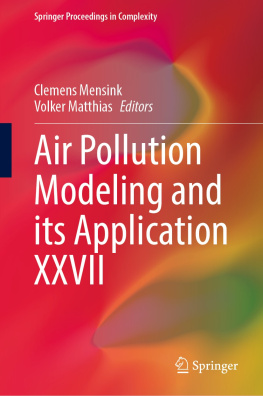
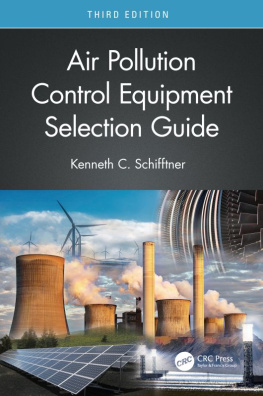

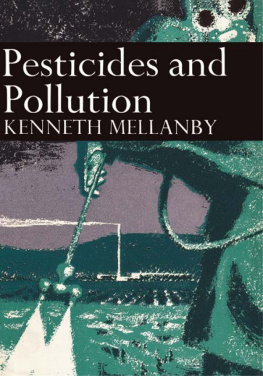
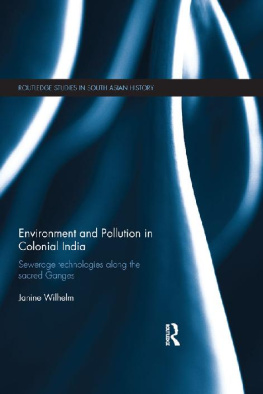
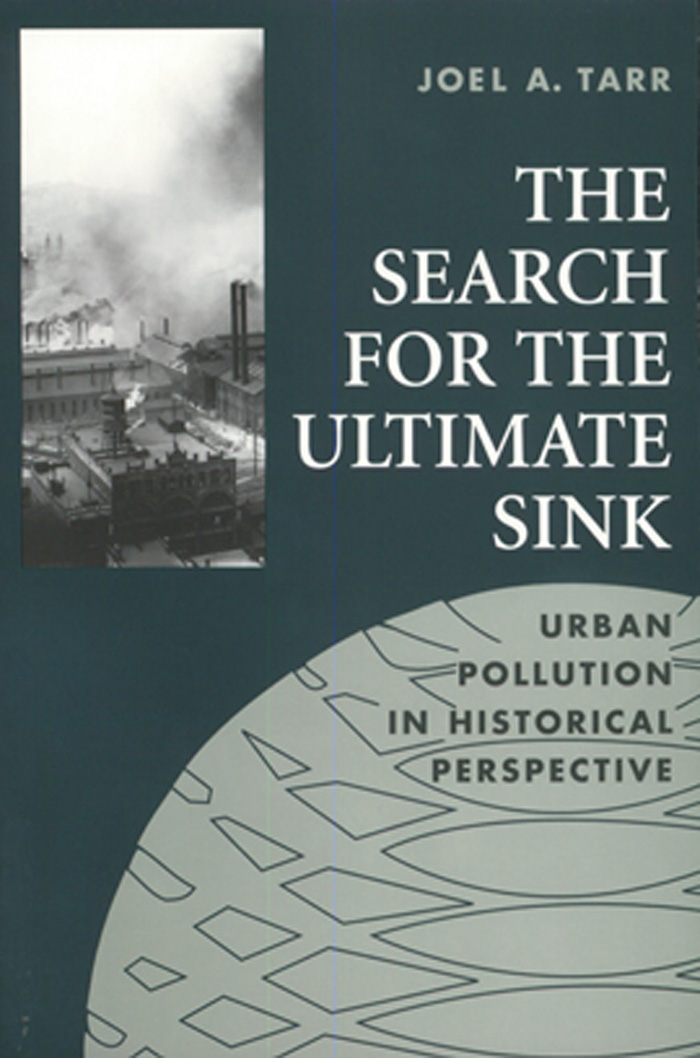


 THE UNIVERSITY OF AKRON PRESS
THE UNIVERSITY OF AKRON PRESS